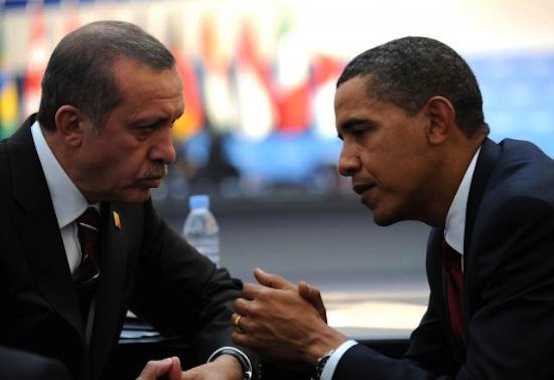By SOLI OZEL and CHARLES A. KUPCHAN
During his recent visit to Israel, President Barack Obama pulled off a major breakthrough in relations between Israel and Turkey. After forging very close ties during the 1990s, Jerusalem and Ankara have of late gone their separate ways. The estrangement peaked as a result of Israel’s 2010 interdiction of the Mavi Marmara, a Turkish ship that was attempting to break the blockade of the Gaza Strip. The Israeli operation resulted in the death of nine activists on board the vessel. The Turkish government was incensed, and an Istanbul court went on to indict four Israeli commanders allegedly responsible for the mission.
On March 22, Obama succeeded in orchestrating a phone call from Benjamin Netanyahu, the Israeli prime minister, to his Turkish counterpart, Recep Tayyip Erdogan. Netanyahu apologized for the loss of life on the Mavi Marmara, a gesture that sets the stage for the repair of relations between the two countries.
This breakthrough, however, is only a tentative beginning; the rupture between Israel and Turkey runs deep. Unless Netanyahu’s apology is followed by a robust action plan for rekindling cooperation between the two countries, the current opening will prove nothing more than a fleeting flirtation.
For the better part of a decade, Turkey and Israel have been growing apart politically. Erdogan’s Justice and Development Party has Islamist leanings; confrontation with Israel is part of its popular appeal. The A.K.P. caters to a more conservative and religious cross-section of the Turkish electorate than the secular governments that preceded it. Indeed, Erdogan has undermined the political strength of Turkey’s traditional power base: the business elite and the military. The Turkish military has long had strong ties to Israel’s security establishment, meaning that its diminished domestic influence has weakened one of the main institutional linkages between Turkey and Israel.
Meanwhile, Israeli politics has been undergoing its own transformation. Netanyahu has presided over a rightward shift in the Israeli electorate, producing governments committed to expanding Israeli settlements on the West Bank. By diminishing the prospects for a two-state solution, this stance has alienated the Turkish government as well as its electoral base. Iran’s nuclear program and the turmoil arising from the Arab Awakening have contributed to a siege mentality among many Israelis, weakening moderates who lament Israel’s growing international isolation.
With Turkish and Israeli politics heading in opposite directions, a meaningful and lasting repair of relations will be an uphill battle. Especially when it comes to the peace process and the fate of the Palestinians, Ankara and Jerusalem are miles apart. Turning back the clock is impossible; the traditional Turkish and Israeli constituencies in favor of strong ties are today too weak. Instead, a new partnership must be built from the ground up.
The new partnership should rest on three pillars, all of which entail concrete acts of cooperation.
First, Turkey and Israel should closely coordinate their efforts to contain the conflict in Syria and facilitate the prompt downfall of the Assad regime. Ankara and Jerusalem should share intelligence, team up to prevent arms flows to Hezbollah and other extremist groups, and work together to aid the Syrian opposition.
Over the horizon, Israel has a strong interest in securing a post-Assad Syria in which Turkey enjoys broad sway. The likely alternatives are chaos or a regime under the influence of radical forces. In the meantime, Israeli willingness to host Syrian refugees would improve its standing throughout the region.
Second, Turkey and Israel should further deepen their economic linkages, nurturing new constituencies in favor of a lasting rapprochement. Even since the Mavi Marmara incident, trade and investment between the two countries have continued to expand, a clear sign that private sectors on both sides are hungry for more commerce. Flights between Turkey and Israel are increasing in number. Jerusalem has also broached with Ankara a proposal to build an underwater pipeline from new Israeli gas fields in the Mediterranean to Turkey, affording Israel access to Europe’s lucrative energy market. Such joint projects would provide a firmer societal foundation for political reconciliation.
Third, Turkey and Israel, with support from the United States and the European Union, should launch a regional forum to address urgent issues of common concern, such as the violence in Syria, its implications for Lebanon and Iraq, and Iran’s nuclear program. Egypt should be at the table, and drawing Cairo into this forum would help anchor the country’s new leadership in regularized regional engagement. Israeli movement on the Palestinian peace process would help immeasurably in improving the prospects for constructive dialogue.
Progress on these three fronts is urgent. Netanyahu and Erdogan are both taking political risks by reaching out to each other. Their bold stroke may come to naught unless it is followed up by demonstrable cooperation between their two countries.
Charles Kupchan is a professor of international affairs at Georgetown University and a senior fellow at the Council on Foreign Relations. Soli Ozel is a lecturer at Kadir Has University and a columnist for the newspaper Haberturk.
A version of this op-ed appeared in print on April 2, 2013, in The International Herald Tribune.
via A Turkey-Israel Opening – NYTimes.com.




